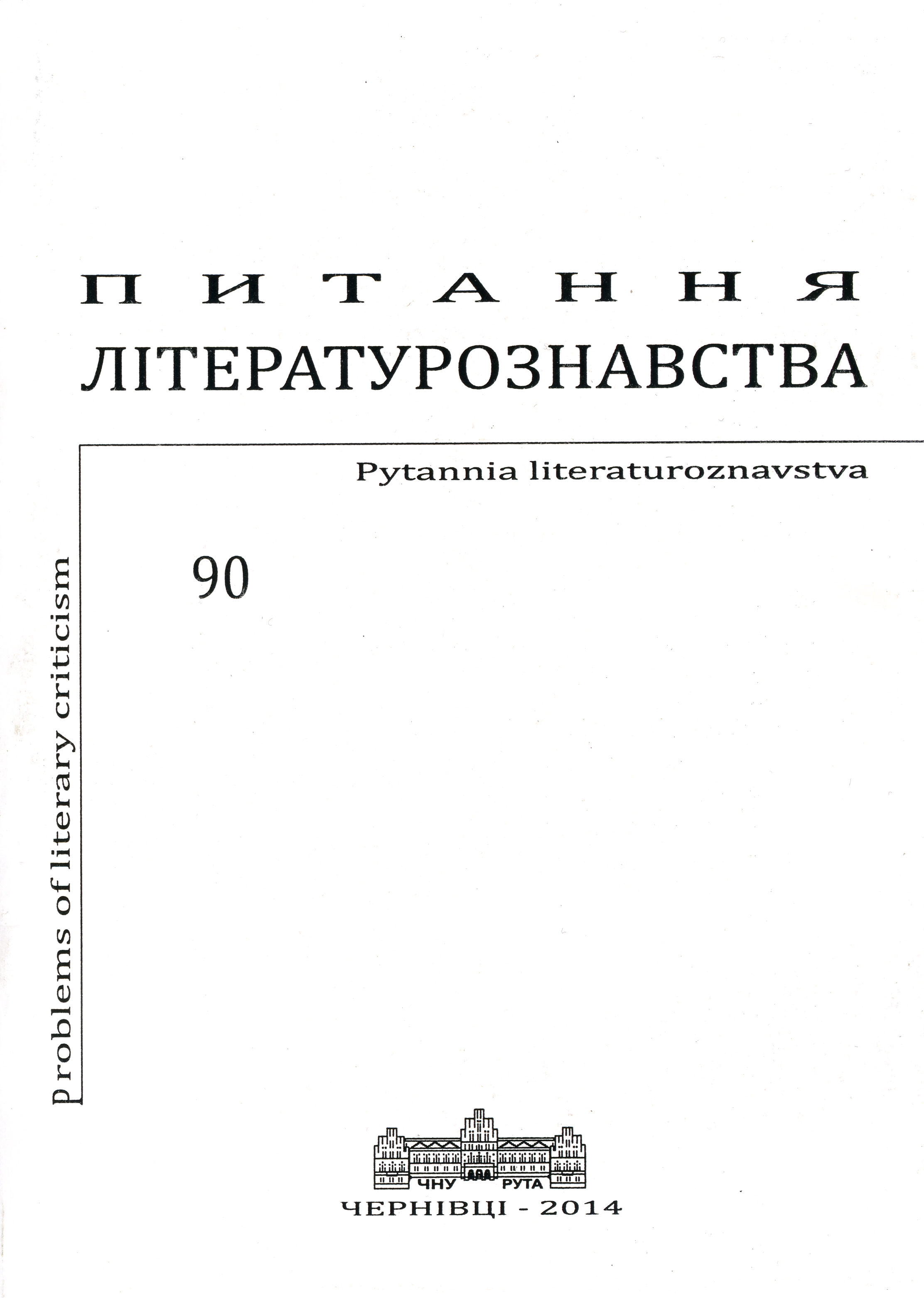“Біографія” Фредеріка Беґбеде у творі “Я вірую – Я теж ні”
“Biography” Frеdеric Beigbeder of the Work “I believe – I don’t either”
Author(s): Svitlana KryvoruchkoSubject(s): Language and Literature Studies, Studies of Literature, Aesthetics, French Literature
Published by: Чернівецький національний університет імені Юрія Федьковича
Keywords: F. Beigbeder; genre; biography; author; reader; aesthetics;
Summary/Abstract: Genre of the work by F. Beigbeder and bishop Jean-Michel di Falco-Leandri “I believe – I don’t either” 2004 is under transformation in which one can notice features of confession, dialogue, interview, philosophic treatise, autobiography. Conceptual stylistic interception of spiritual, scientific, artistic with “mass” enriches intergeneric lyrical epic canon. Confessional manner, shocking behavior, destruction of stereotypes, inherent to fiction by F. Beigbeder, writer uses the limit of ХХ–ХХІ centuries to form his own figure of intellectual person, who finds himself in the “system” (Christian Catholic world-view), feels its imperfection, tries to “go out” (atheism), though, diffidently looks round the source. Even in objection of the idea of God F. Beigbeder presents himself as an individual of religious consciousness. By means of this book F. Beigbeder introduces himself to the reader as a “text” (work of art, that aspires to figure in history), and it seems that he does it not for contemporaries, but for offsprings, who with the lapse of time will be able to highlight the key points. The reader faces a complex genre formation where the elements of mass and intellectual literature cross. The formal structure of the work corresponds to an interview but the interview’s precursor is the form of ancient literature dialogues. The volume of the work has common cross points with treatise and conceptually realizes the principles of literary portrait, to be more precise “self-portrait” or “psychological self-portrait” since F. Beigbeder reveals himself in the sphere of feelings that are interpreted on the basis of philosophy. With the help of certain biography facts – biographems – the writer reveals his own contradictoriness that is integral. F. Beigbeder underlines that the combination of religious and secular education formed in his consciousness the possibility to make a choice, so the writer doesn’t feel the existential fear of choice developed in the middle of the XXth century by S. de Beauvoir, A. Camus, J.-P. Sartre in their heroes. He synthesized in his own world-view the opposite (religious and secular), so the choice represents for him a norm or a way of life that doesn’t afraid him.
Journal: Питання літературознавства
- Issue Year: 2014
- Issue No: 90
- Page Range: 133-143
- Page Count: 11
- Language: Ukrainian

